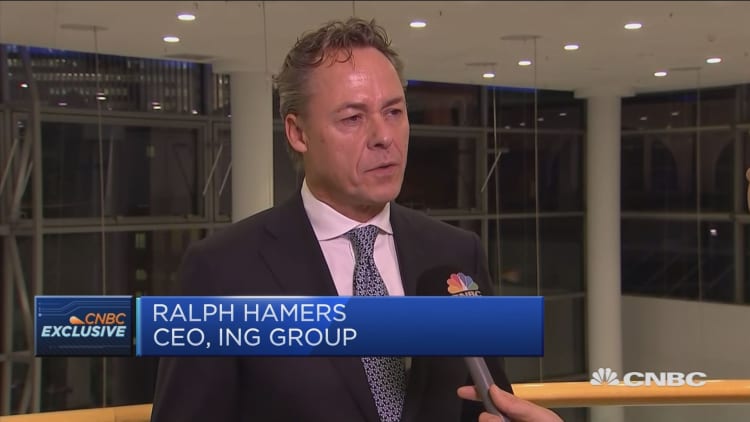More than half the players in the global banking sector aren't generating enough returns and should quickly reinvent themselves to weather any future economic storms, according to a report from consulting firm McKinsey.
Nearly 60% of banks are not generating returns on equity which could be exacerbated if another crisis hits, the 58-page report released on Monday said. "A prolonged economic slowdown with low or even negative interest rates could wreak further havoc," the report stated.
Chira Barua, a London-based McKinsey partner and co-author of the report, called this a "do or die" moment. Barua explained that a serious downturn could be catastrophic for a number of banks if they don't reinvent themselves.
"Whilst imaginative institutions are likely to come out leaders in the next cycle, others risk becoming footnotes to history. However, there are steps every bank can take today to change their fortunes and begin the next cycle on a stronger footing, but time is running out. Boards and management should actively consider strategic moves now instead of the cycle forcing it on them in a downturn," Barua said.
Low rates, low profits
Banks across the globe have been bearing the brunt of record-low interest rates. Rising rates are good for banks since it allows them to lend out money to investors at a profitable rate of interest. Lower interest rates restrict a bank's ability to make profits, thus adding pressure on margins. Negative interest rates, such as in Europe, penalize the banks for holding cash deposits at central banks.
Added to that are the threats that banks face from fintech (financial technology) players such as Revolut and tech companies such as Apple who have entered the banking space. According to McKinsey, banks only set aside 35% of their IT budgets to innovation and reinventing strategies, whereas fintech players spend more than 70%.

The report, that doesn't mean any names of the banks, outlines key priorities such as ramping up artificial intelligence-led risk management systems, identifying unique customer bases as well as building out digital talent base and data analytics.
In a separate report last month, PwC Luxembourg and development agency Luxembourg for Finance said Europe's banks and wealth managers should proactively embrace "Amazonization" and the shift in power to consumers driven by online platforms.
John Parkhouse, senior partner at PwC Luxembourg, said: "With Europe's financial industry facing up to Amazonization and the critical themes like ESG (environmental, social and governance) innovation and technology that accompany it, more traditional players must focus and invest, if they want to remain competitive on a global scale."
Consolidation
The report from McKinsey identifies four categories, which banks around the world could be put into. The first is called "market leaders," which includes the top 20% which globally capture almost 100% of the economic value added by the entire industry. The second is "resilients" which includes 25% of banks that have maintained leadership in challenging markets, including many in Europe.
The third category, "followers," includes 20% of banks that have not achieved scale and are weaker than their peers, despite favorable market dynamics. "They are at risk from a downturn and must act promptly to build scale in their current businesses, shift business models to differentiate, and radically cut costs," the report said.

Finally, it is the "challenged banks." This category includes the remaining 35% of banks globally that are both under performing as well as operate in unfavorable markets. McKinsey warns that the business models in these banks are flawed. "To survive a downturn, merging with similar banks or selling to a stronger buyer with a complementary footprint may be the only options if reinvention is not feasible."
Correction: The headline and text of this story has been updated to more accurately reflect the results of the study by McKinsey.


